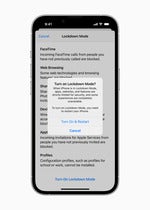Why Apple's iOS 16.6 upgrade will be talk of the town

Apple’s big developer event is approaching, and it looks as if the company will press home its message on privacy as it begins to seed support for the AR operating systems it’s now expected to announce there.
Apple wants to get you updating
As of now, the Worldwide Developer Conference (WWDC) starting June 5 seems set to see Apple introduce its first mixed reality glasses, likely called RealityPro. These will be accompanied by an operating system that recent patent filings suggest will be called xrOS or xrProOS. The event will also see Apple introduce new iterations of its other operating systems, which developers will be able to work with soon after the show.







